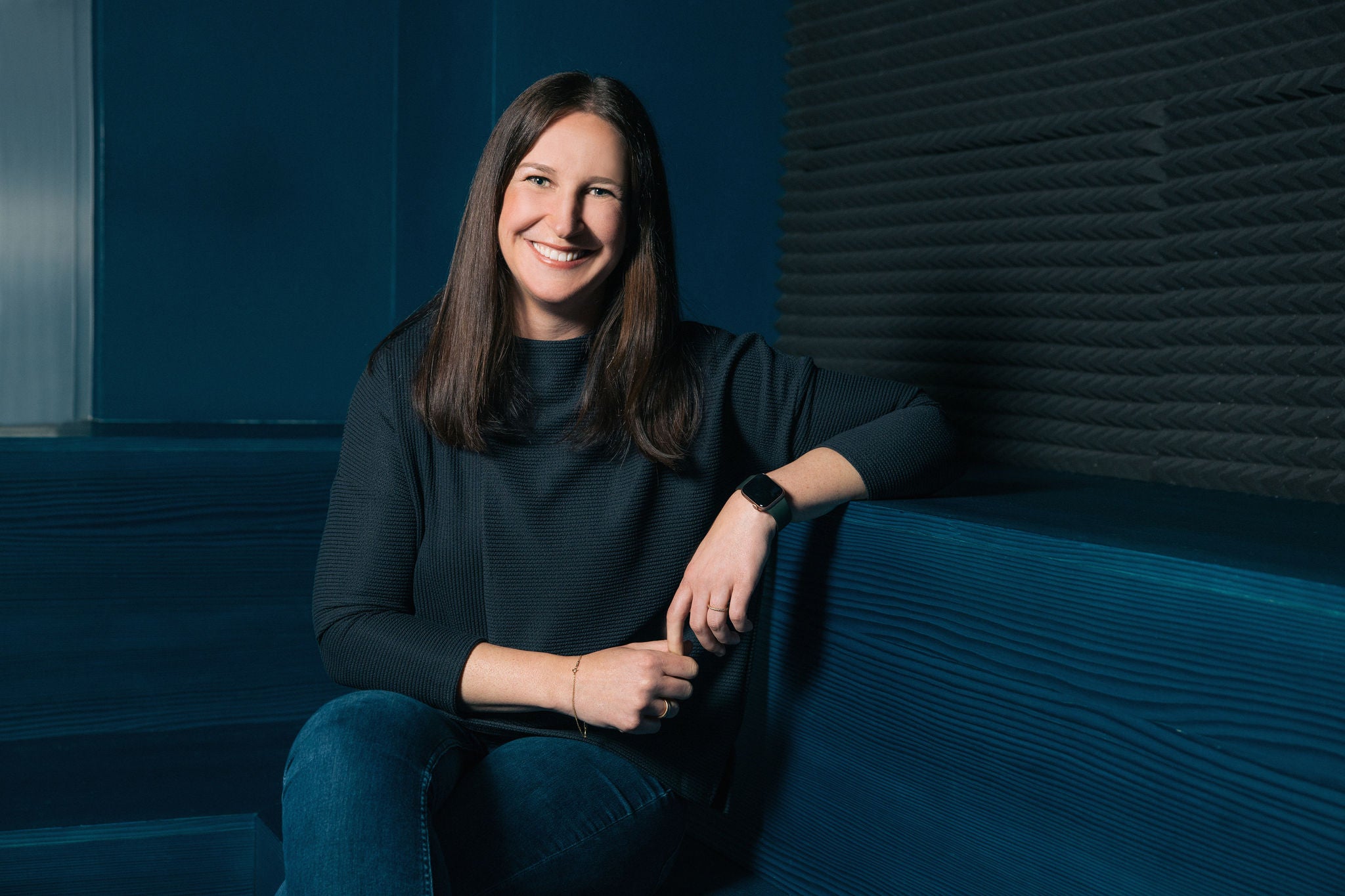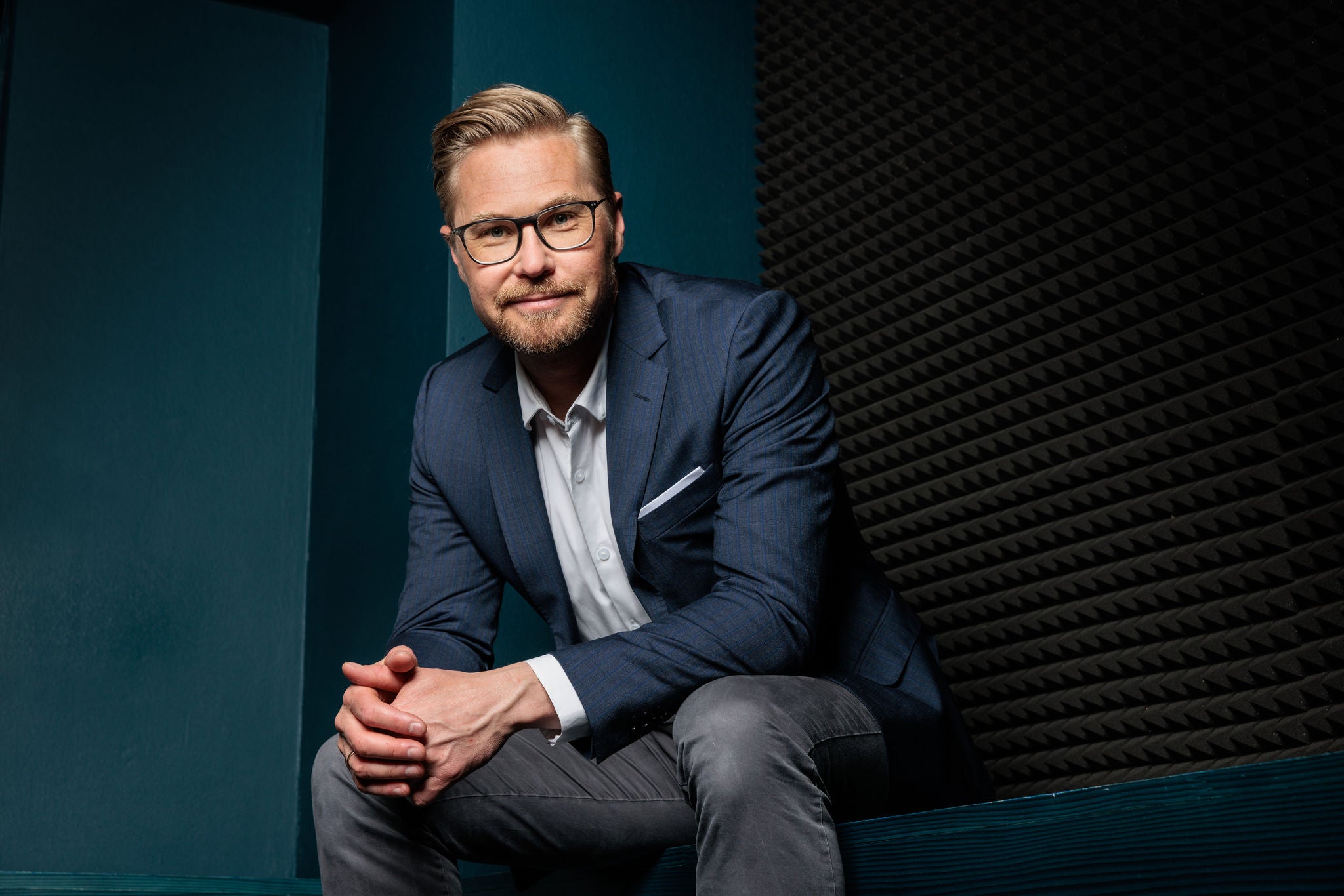with Thomas Laranjo and Dr. Alexandra Dobra-Kiel
CEO Total Media Group & Innovation and Strategy Director
Behave’s whitepaper “The death of the comfort zone: Unwrapping psychological safety in the workplace” highlighted that only 16% of the surveyed HR Directors in the UK defined psychological safety correctly. There is not only a big misunderstanding around the definition of psychological safety, but also the topic itself. So, we sat down with the CEO of Total Media Group Ltd, Thomas Laranjo, and the Innovation & Strategy Director at Behave, Dr. Alexandra Dobra-Kiel, to find out more about how innovation is enabled by psychological safety.
The definition is psychological safety, according to Behave, is the balance between comfort and discomfort, but in a UK-based survey, only 16% of employees were able to pick the correct definition.
Innovation opens up the possibility to introduce something new, something different. Innovation is also a great way to channel curiosity and restlessness for me. It’s a really strong opportunity to solve problems and identify opportunities and I think that is something we try and stay very true to as an agency. We innovate to solve problems or to make something better, so it’s not innovation for innovation's sake,” – Thomas Laranjo.
Innovation is about solving problems by truly deepening our understanding of them. You strip away all the fluff and unnecessary layers in order to find what’s really essential about the problem and how we can solve it in a durable manner,” – Dr. Alexandra Dobra-Kiel.
At Mediaplus, innovation is all about making things better, and that is both a challenge and an opportunity for our teams. It’s also a non-stop process – identifying problems, solving them, and opening doors to new opportunities. Although we work in the media industry, we are also in the business of results. That is what our clients judge us on at the end of the day. Innovation is a path to providing better and more sustainable results for those clients.
Purposeful innovation is extremely powerful and important. It solves real-world problems and creates new possibilities that can forward the entire industry. It all comes back to relevance and performance, and innovation is really key for our industry because the same thinking that took us to this point isn't going to get us anywhere in the next 10 years.
As individuals, innovation compels us to explore diverse perspectives, but also to look into overlooked angles and to also go counter some of our vices so as to develop effective problem-solving tools in terms of the agencies. As a company, it is also about commercial viability and setting us apart from the crowd – solving those problems that no one else is solving.
In order to innovate on a large company scale, you must first create an environment in which innovation can flourish. Dr. Alexandra Dobra-Kiel has come up with a very innovative solution to this. It is a proprietary solution around psychological safety and it's a way of codifying, measuring and nurturing psychological safety within an organization.
“Psychological safety is the balance between comfort and discomfort to enable employees to take well-calibrated risks,” – Dr. Alexandra Dobra-Kiel.
Our definition of psychological safety takes the concept of psychological safety much further in a much more tangible way. It's not just about safety, it's about creating that environment where employees balance comfort and discomfort, and by carefully balancing that you can unlock innovation and productivity. We created the proprietary framework for this, but also a methodology in order to really provide a new approach to measuring, while also implementing psychological safety as part of the DNA of companies.
In order to successfully achieve psychological safety and to enable innovation through it, you need to vet the cultural elements of a company. But you also need a second element which we would call the thinking element. It’s really about critical thinking and emphasizing open-ended questions. This is really a powerful tool to prompt individuals to think in a more innovative way, because it also takes you out of your routine. It takes you out of that pattern of constantly doing and then repeating over and over again.
Inspiration is one of the most important elements of innovation. Teams need to be inspired in order to innovate.
“It's so easy now to live in a bubble and to not be willing to see other people’s perspectives, especially when they're different to yours. And actually, most importantly, when they're different to yours. So I think people who show the intellectual curiosity and integrity to just be willing to see other people's points of view I find very inspiring because it pushes me to do the same and not always to think that what I think is right,” – Thomas Laranjo.
“For me, I am inspired by philosophy. We often think that philosophy is not easy to apply, but actually, it is very applicable because it equips you with the intellectual rigour to explore problems to their foundations challenge assumptions, engage with diverse perspectives, pursue possibilities and ultimately create real solutions,” – Dr. Alexandra Dobra-Kiel.
Mediaplus prides itself on being an innovative company. We are always looking to innovate in every seminar and at every touch point – a relentless pursuit of trying new things. It is important not to fear failure when trying to innovate; failure is part of the journey. If things don’t work, you simply try something else. That is the hallmark of a company that is dedicated to delivering innovation, because we appreciate that we can’t be successful every single time. Getting things right is the easy part, striving to innovate in the face of failure is a difficult and commendable skill.
It is so important to have good questions before you embark on innovation. There is a real importance of understanding what it is that you're trying to achieve and how you want to achieve it. You often see a frenzy of activity around innovation teams with action and deadlines and scrums and races and all sorts of processes with timelines and money. Without purpose and critical questioning, it all ends up being quite meaningless, unclear, and not very useful. That’s the power of good questioning.
The idea of innovation itself can be a rather daunting one, as if you have to come up with this grandiose new addition of knowledge that no one has ever thought about. Only a few individuals in human history have ever managed to achieve something on that scale. What innovation really is, in the beginning, is usefulness. How can you shed a different light on an already explored solution, or how can you come up with a new solution altogether? The biggest worry is that we start to cast innovation and we don’t really quiz whether these big tech investments actually have meaningful societal or economic results. It begs the question, after all this frenzy of innovation and technology, will we still be able to distinguish between what is truly innovative and what is not?

In business, you can have lots of different cultures. You can have a culture driven by fear, a culture driven by pressure, or a culture driven by psychological safety. True innovation occurs when employees feel that tension between being safe enough to challenge but being willing to put themselves into uncomfortable places to take on that challenge. If you're trying to be a company that can drive towards that sort of environment to solve those sorts of problems, then psychological safety is really important.
What we have seen is that during the pandemic, because of the dramatic changes it imposed, psychological safety came back as a sort of trending topic, especially related to the idea of how you manage remote work. However, it is not a new topic as such. There just remains the question of how you refine it in order to make it more useful and tangible in the modern world. The concept of psychological safety becomes even more important when you consider what people are going through right now and all the challenges brought about by COVID-19.
The drivers of discomfort, according to our framework, are humility, examination, and vulnerability, but they aren't words that you see often played out in businesses. How do you manage the idea of introducing new thinking into a company with old shareholders if you are not willing to be vulnerable? After all, diamonds are made under pressure!
There are some instances where pressure and deadlines lead to good results, but it depends very much on the environment that you create around that and what the culture is within the company. How you how you manage success and failure in the context of that pressure? Sometimes pressure can lead to diamonds, but it can also lead to burnout exhaustion and mental health issues. You do need pressure because that puts you outside of your comfort zone, but equally, it depends on what that pressure generates in terms of your emotions. What we've seen, for example, in the wake of the global financial crisis, was that you had a lot of financial services companies with a lot of pressure, and it wasn't diamonds that were created, it was the global financial crisis that was created, which is slightly different.
But how do you measure psychological safety? Retention is a big marker of positive psychological safety. But retention also needs to be examined within context. Do you want to retain all employees at all costs, or do you want to retain the best employees who reflect the culture of the company and drive innovation? Psychological safety will also improve flexible working and hybrid working as a direct consequence because it helps to create a culture where you can have open and honest conversations about the benefits or downsides of different modes of working. It will also improve innovation, which you can measure as a direct output, not just in terms of volume, but quality too.
Psychological safety needs to be implemented from the top down and only the leaders within the company can drive a culture shift towards that balance of comfort and discomfort. If that happens, the rest of the staff will follow suit, creating a far more productive and innovative company culture for all.




























